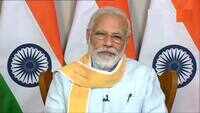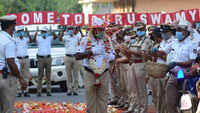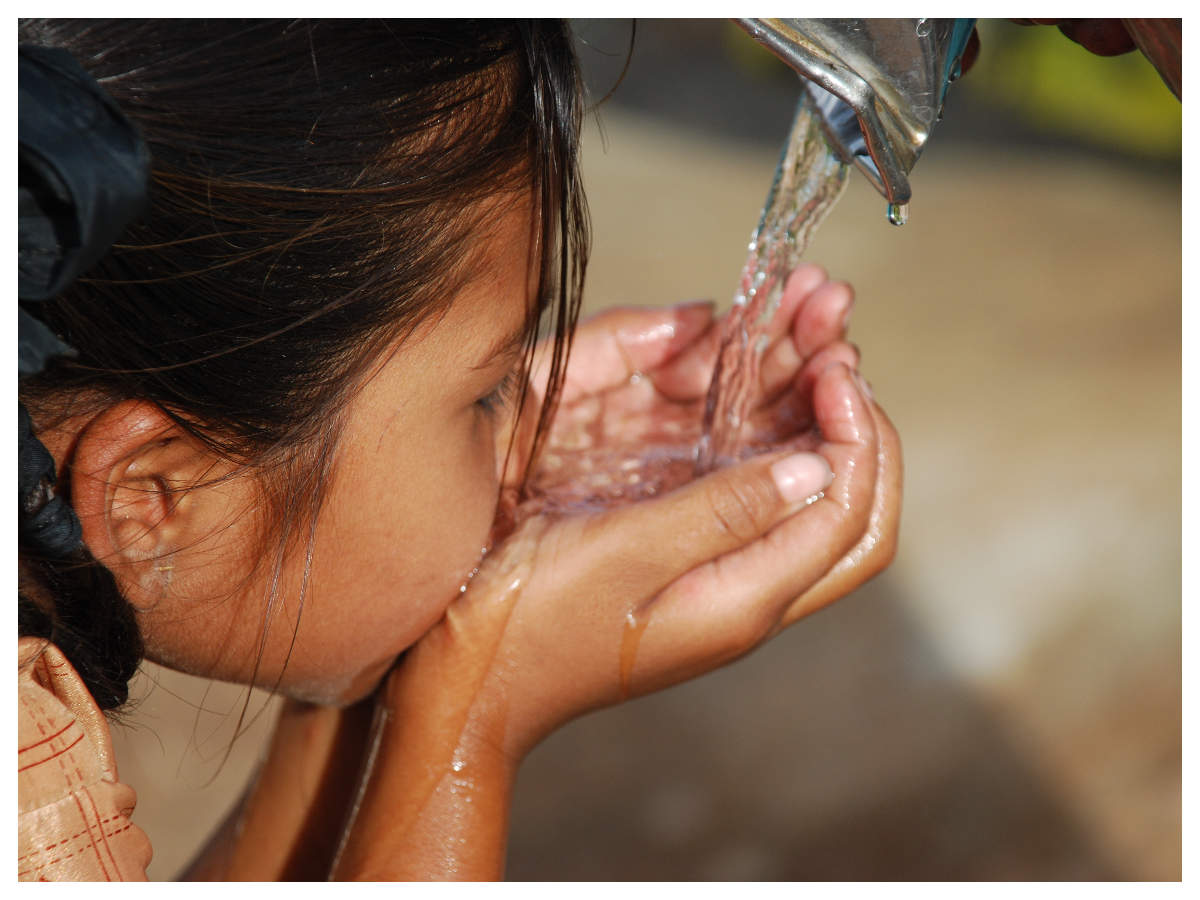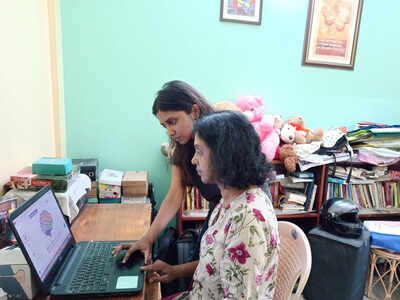
Monica Anthony has been an educator for 30 years, and loves being in the classroom, a space of curiosity, discipline and racket. The Covid-19 crisis took away her favourite parts, presenting her with a test she was not prepared for: online classes.
“Anything involving technology often puts me on the backfoot,” she says, conceding that the digital setting overwhelmed her initially. Then, her two daughters, a data scientist and a management graduate, taught her “like a little child” how to use online tools and take classes.
“If digital learning is the future, bring it on!” says Monica, 55, who heads New Baldwin’s International School in Banaswadi and teaches class X biology.
Hundreds of teachers have made the switch after some trial and error, adapting to the new normal in education. Colleges are conducting full-fledged online classes, higher grades in schools have also started them and lower grades will follow suit in June.
Teachers have undergone intensive training as the dynamics of online instruction are different from a regular class on the campus and it’s difficult to determine if students are comfortable with the session’s pace and duration. The most common worry is: are students grasping what is being said or simply staring at the screen. Technical issues such as video lag and audibility are also major concerns.
But educators are preparing to tackle such situations, conducting mock classes with colleagues filling in as students. Even physical education and music programmes are being tweaked for an online audience. IT departments of schools worked overtime during the summer break to get things ready.
“Sessions for class 10 and 12 are already on. Other teachers sit in as observers to note down progress and problems. An online class is very different from a regular one and requires planning,” says Usha Unnikrishnan, head of the department of English at National Public School. “In a regular class, we can gauge the pulse of the class and improvise. When you go online, everything must be planned and things must happen with clocklike efficiency.”
Simple things like addressing a query or asking a question to a student can disrupt the flow. “We need to have a student’s name in mind beforehand to ask a question as we don’t see all the faces at a time. We are developing more of visual learning and listening responsibility now,” says Usha.
There have been awkward instances of ‘helicopter parenting’: parents sit beside the child during the online session and comment on the teacher’s expertise. Teachers miss in-person interactions and even the classroom mischief. “So much used to happen on the campus and in the classroom; students had various communities for activities. Right now, everyone is living in isolation. I miss my students,” says Chitra Panikkar, an English professor at Bangalore University. “The virtual world is no substitute for campus life and social interaction.”
Despite the challenges, online education is moving forward, covering more areas, including performing arts. “Last year, our vice-chancellor asked us whether we would like to start a distance programme for performing arts. We immediately said no. Now, we conduct daily sessions. The unthinkable has happened,” says music teacher SN Susheela, who heads the performing arts department at Bangalore University. “Our traditional method of teaching Bharatanatyam or Carnatic music does not go well in an online setting. One has to observe the guru, put thalam, learn to pronounce words, break them at the right time and monitor body language. These things require face-to-face interaction.”
But the plugged-in mode has some key advantages. “You can hold classes with experts from all over the world,” says Susheela.
Shalini Naik, the athletics coach at Inventure Academy, says the online experience is new and challenging but things are slowly settling down. “It’s exciting now. Every class has two teachers, one demonstrates while the other observes. Say, we want to teach the arm action while running. We show them the elbow position and ask them to replicate it. We correct them if need be. Of course, we miss practising outdoors, the energy and team play. But we are managing. It’s important that children do physical activity and follow fitness routines,” says Shalini.
The closure of schools and the online push have also revealed inequalities in the education system. Poor families don’t have access to technology. Ramagondanahalli Government School, adopted by nonprofit Whitefield Rising, has been conducting academic activities on WhatsApp. The students, mostly children of migrant labourers, are provided worksheets, which parents pick up along with ration kits.
“It has not been easy, though parents have phones. They go out in search of work and students have no access to phones. It took a lot of effort to connect them. We recharged their phones multiple times,” says Ruchi Tiwary, a volunteer from Teach for India who works at the school. “Despite the problems, we are happy that students are engaged and remembering lessons that they would have otherwise forgotten. Those in lower classes are quite eager to learn.”
“Anything involving technology often puts me on the backfoot,” she says, conceding that the digital setting overwhelmed her initially. Then, her two daughters, a data scientist and a management graduate, taught her “like a little child” how to use online tools and take classes.
“If digital learning is the future, bring it on!” says Monica, 55, who heads New Baldwin’s International School in Banaswadi and teaches class X biology.
Hundreds of teachers have made the switch after some trial and error, adapting to the new normal in education. Colleges are conducting full-fledged online classes, higher grades in schools have also started them and lower grades will follow suit in June.
Teachers have undergone intensive training as the dynamics of online instruction are different from a regular class on the campus and it’s difficult to determine if students are comfortable with the session’s pace and duration. The most common worry is: are students grasping what is being said or simply staring at the screen. Technical issues such as video lag and audibility are also major concerns.
But educators are preparing to tackle such situations, conducting mock classes with colleagues filling in as students. Even physical education and music programmes are being tweaked for an online audience. IT departments of schools worked overtime during the summer break to get things ready.
“Sessions for class 10 and 12 are already on. Other teachers sit in as observers to note down progress and problems. An online class is very different from a regular one and requires planning,” says Usha Unnikrishnan, head of the department of English at National Public School. “In a regular class, we can gauge the pulse of the class and improvise. When you go online, everything must be planned and things must happen with clocklike efficiency.”
Simple things like addressing a query or asking a question to a student can disrupt the flow. “We need to have a student’s name in mind beforehand to ask a question as we don’t see all the faces at a time. We are developing more of visual learning and listening responsibility now,” says Usha.
There have been awkward instances of ‘helicopter parenting’: parents sit beside the child during the online session and comment on the teacher’s expertise. Teachers miss in-person interactions and even the classroom mischief. “So much used to happen on the campus and in the classroom; students had various communities for activities. Right now, everyone is living in isolation. I miss my students,” says Chitra Panikkar, an English professor at Bangalore University. “The virtual world is no substitute for campus life and social interaction.”
Despite the challenges, online education is moving forward, covering more areas, including performing arts. “Last year, our vice-chancellor asked us whether we would like to start a distance programme for performing arts. We immediately said no. Now, we conduct daily sessions. The unthinkable has happened,” says music teacher SN Susheela, who heads the performing arts department at Bangalore University. “Our traditional method of teaching Bharatanatyam or Carnatic music does not go well in an online setting. One has to observe the guru, put thalam, learn to pronounce words, break them at the right time and monitor body language. These things require face-to-face interaction.”
But the plugged-in mode has some key advantages. “You can hold classes with experts from all over the world,” says Susheela.
Shalini Naik, the athletics coach at Inventure Academy, says the online experience is new and challenging but things are slowly settling down. “It’s exciting now. Every class has two teachers, one demonstrates while the other observes. Say, we want to teach the arm action while running. We show them the elbow position and ask them to replicate it. We correct them if need be. Of course, we miss practising outdoors, the energy and team play. But we are managing. It’s important that children do physical activity and follow fitness routines,” says Shalini.
The closure of schools and the online push have also revealed inequalities in the education system. Poor families don’t have access to technology. Ramagondanahalli Government School, adopted by nonprofit Whitefield Rising, has been conducting academic activities on WhatsApp. The students, mostly children of migrant labourers, are provided worksheets, which parents pick up along with ration kits.
“It has not been easy, though parents have phones. They go out in search of work and students have no access to phones. It took a lot of effort to connect them. We recharged their phones multiple times,” says Ruchi Tiwary, a volunteer from Teach for India who works at the school. “Despite the problems, we are happy that students are engaged and remembering lessons that they would have otherwise forgotten. Those in lower classes are quite eager to learn.”

Coronavirus outbreak
Trending Topics
LATEST VIDEOS
City
 Watch: Video proof of Pak diplomat spying with a decoy sent by the Indian Intelligence Agency
Watch: Video proof of Pak diplomat spying with a decoy sent by the Indian Intelligence Agency  Unlock 1.0: Non-subsidized LPG gas price hiked by Rs 11.50 in Delhi
Unlock 1.0: Non-subsidized LPG gas price hiked by Rs 11.50 in Delhi 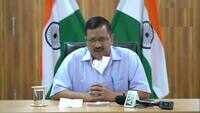 Covid-19 crisis and lockdown: Delhi CM Arvind Kejriwal seeks public suggestions
Covid-19 crisis and lockdown: Delhi CM Arvind Kejriwal seeks public suggestions 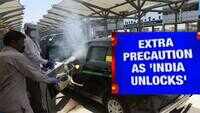 India unlocks: Guidelines issued to taxi services operating to and from Delhi Airport
India unlocks: Guidelines issued to taxi services operating to and from Delhi Airport
More from TOI
Navbharat Times
Featured Today in Travel
Get the app
